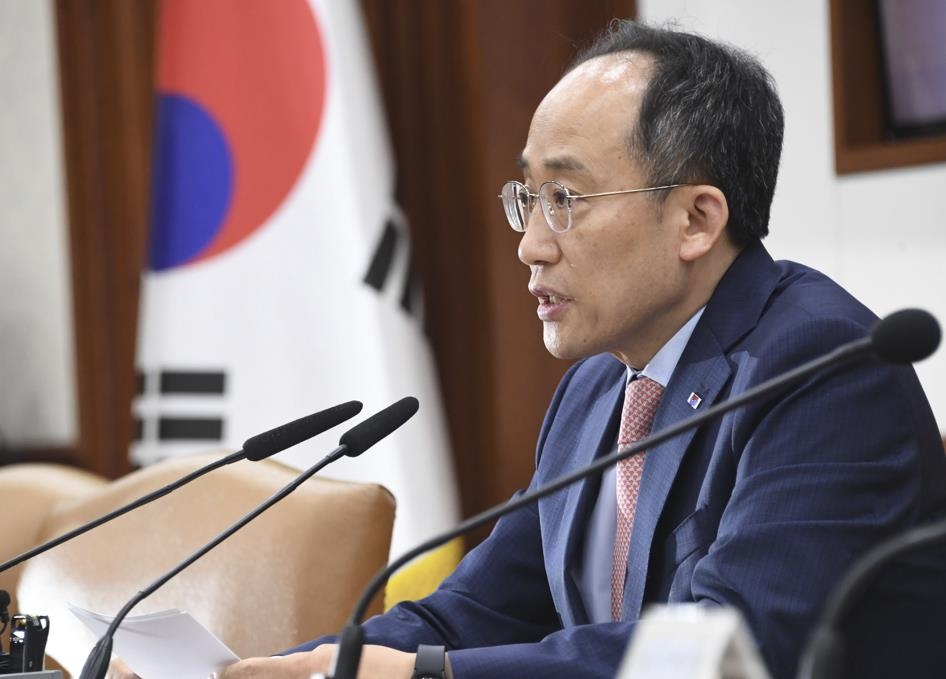- California Assembly OKs highest minimum wage in nation
- S. Korea unveils first graphic cigarette warnings
- US joins with South Korea, Japan in bid to deter North Korea
- LPGA golfer Chun In-gee finally back in action
- S. Korea won’t be top seed in final World Cup qualification round
- US men’s soccer misses 2nd straight Olympics
- US back on track in qualifying with 4-0 win over Guatemala
- High-intensity workout injuries spawn cottage industry
- CDC expands range of Zika mosquitoes into parts of Northeast
- Who knew? ‘The Walking Dead’ is helping families connect
S. Korea to lift set of regulations to induce 300 bln won of investment
South Korea plans to lift a set of industrial regulations to try to induce combined private investment worth 300 billion won (US$231 million), the finance ministry said Wednesday.
The plan, the fifth of its kind, will lift hurdles for five investment projects, including construction of production lines, according to the Ministry of Economy and Finance.
“South Korea’s exports have experienced a recent decline, primarily attributed to the deteriorating IT sector and weak business sentiment, which has resulted in sluggish facility investment amid lingering challenges in the economy,” Finance Minister Choo Kyung-ho said.
Facility investment in the country is anticipated to fall 3.2 percent on-year in 2023, compared with a 0.5 percent drop tallied in 2022, separate data compiled by the Bank of Korea showed in May.
“The government is currently preparing or promoting at least 30 measures for exports, including beefing up the competitiveness of the chips and K-content industries for a speedy rebound in exports and investment sentiment,” Choo added.
Under the latest plan, the government will relax environmental regulations for companies that emit pollutants and wish to relocate to an industrial complex in Ulsan, located 299 kilometers south of Seoul.
Currently, the zone prohibits firms emitting 35 types of pollutants from establishing their base there, but the government decided to permit them if their emission levels meet the specified criteria.
The government will also offer ways to increase the industrial water capacity of another zone in the central city of Sejong, helping factories to go ahead with their expansion.
Additional measures involve applying the same education requirements for foreign individuals wishing to work as online language instructors here as South Koreans, lowering barriers for education startups.
Currently, foreigners must possess a minimum of a four-year college degree to be eligible for employment as language teachers in the country, whereas South Koreans are only required to hold a junior college degree or at least be a junior at university.












